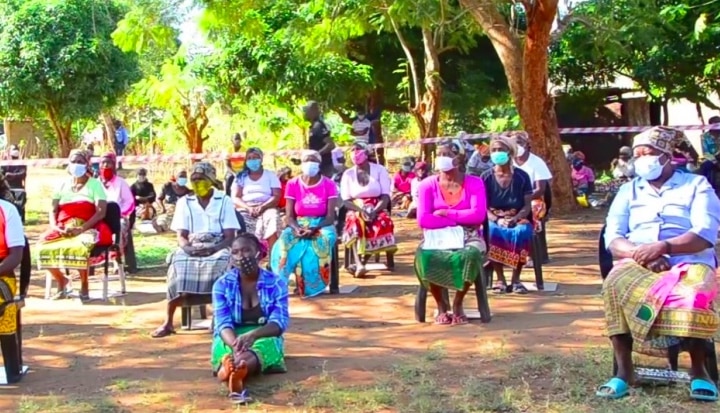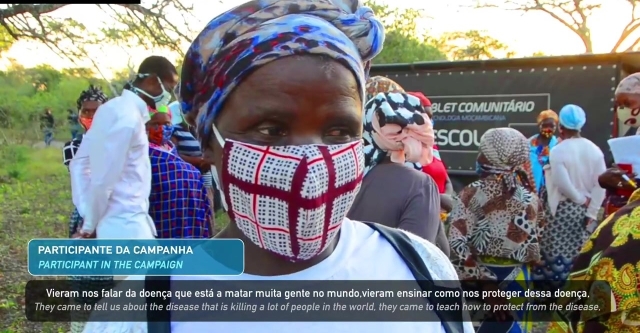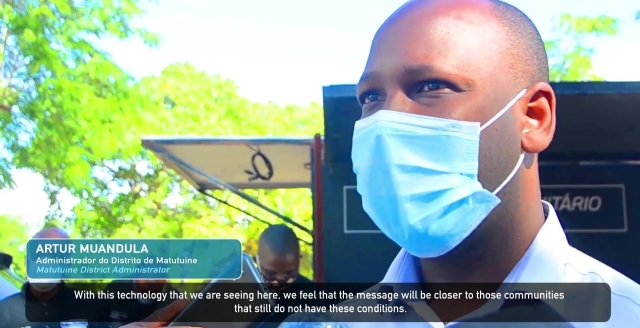“We use solar-powered tablets to conduct community education campaigns on financial education, contraception and HIV, health, vaccinations, civic education, and now to inform communities about measures to prevent the spread of COVID-19,” says Dayn Amade, founder of the Tablet Comunitário/Community Tablet.
In the wake of the outbreak of the novel corona virus and realizing the need to disseminate information about the spread and prevention of COVID19 and other health-related issues, the Community Tablet initiative, with support received from the United Nations Industrial Development Organization (UNIDO) and the Global Environment Facility (GEF), is conducting digital campaigns in communities that are otherwise excluded from digital information.
The Community Tablet initiative is the first digital school in Mozambique. The Community Tablet is a container consisting of four to six large LCD screens, powered by solar panels and transported by trailer, which can be attached to anything – from a motor vehicle to a donkey.
The interactive touch screen can be linked with cameras and a large screen to allow inclusive and group outdoor video conferencing. The touch screen can also disseminate videos, and can also be used as a digital white board. For connectivity, the tablet is linked to the internet network via the Global System for Mobile Communications (GSM) or by satellite. This infrastructure is also prepared with a plug-and-play cold chain compartment, which can incorporate fridges or a freezer to allow for the storing and handling of vaccines
Besides supporting the Community Tablet’s ongoing work on a wide range of topical issues, the solar-powered tablets will be used for the purpose of knowledge transfer during renewable energy-related capacity building and technology demonstration sessions as part of UNIDO’s ’Towards Sustainable Energy for All in Mozambique project.
Amade explained that the 10 solar kits would not only make the use of Community Tablet more effective, but would also reduce the expense of the panels and accessories such as inverters and batteries. “One solar kit alone and its accessories in Mozambique is very expensive, but with the kits that UNIDO has provided, the cost will be reduced by 35%.”
To date, the digital health education campaigns have reached 1,900 people in 31 districts have been reached through. Of these, 500 (mostly women) have been reached during the COVID-19 education campaign conducted in May and June 2020.
The Community Tablet initiative, with UNIDO and the GEF’s support, is also planning to reach communities located on islands in Mozambique. The amphibious tablet is the current innovation powered by solar energy with the aim of offering health solutions to communities residing in hard-to-reach places.
This article was previously published on UNIDO’s website












